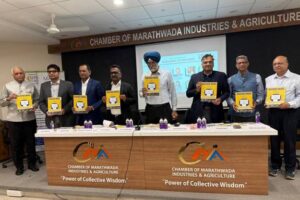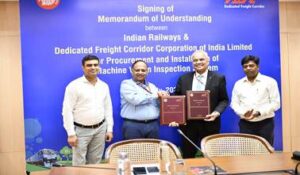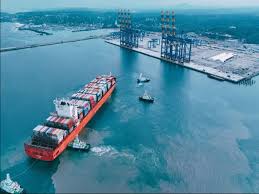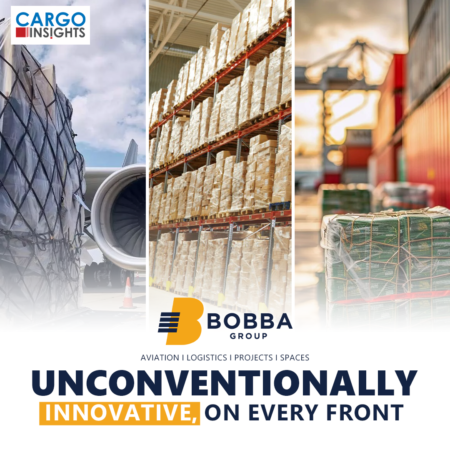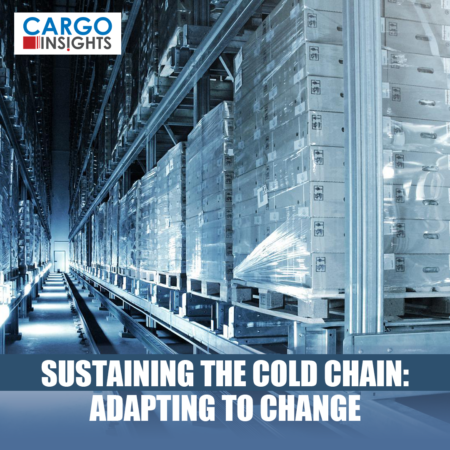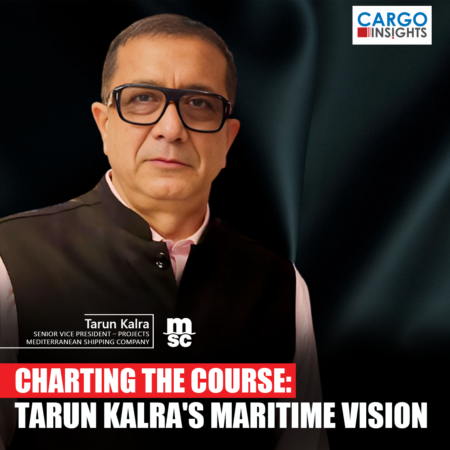Women are redefining global logistics, breaking barriers, and driving innovation. From orchestrating complex supply chains to pioneering sustainable solutions, they are redefining the industry’s future.
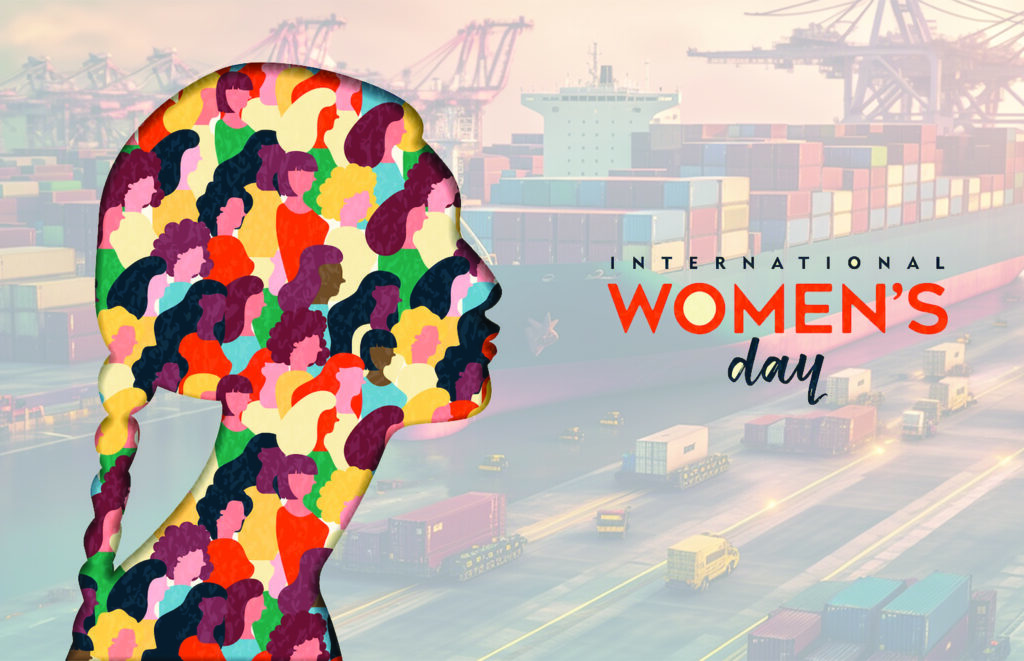
Ever wondered who’s really moving the world? Beyond the colossal ships and sprawling warehouses, a quiet revolution is underway in the logistics industry. Women are stepping into the driver’s seat, challenging long-held assumptions, and redefining how goods traverse the globe. From orchestrating complex supply chains to pioneering technological advancements, their influence is undeniable. But the journey hasn’t been without its hurdles. In India, a nation brimming with potential, women’s participation in logistics, while growing, still lags behind. This cover story delves into the stories of these trailblazing women, exploring their triumphs, their challenges, and the unique perspectives they bring to this dynamic field. We shine a spotlight on Anjali Bhide, Dr. Sharmila H. Amin, Dr. Vandana Singh, Sarini Sachdeva, and Apeksha Gupta who are redefining the industry’s future. Their journeys inspire change, prepare to be inspired.
Navigating the seas of logistics
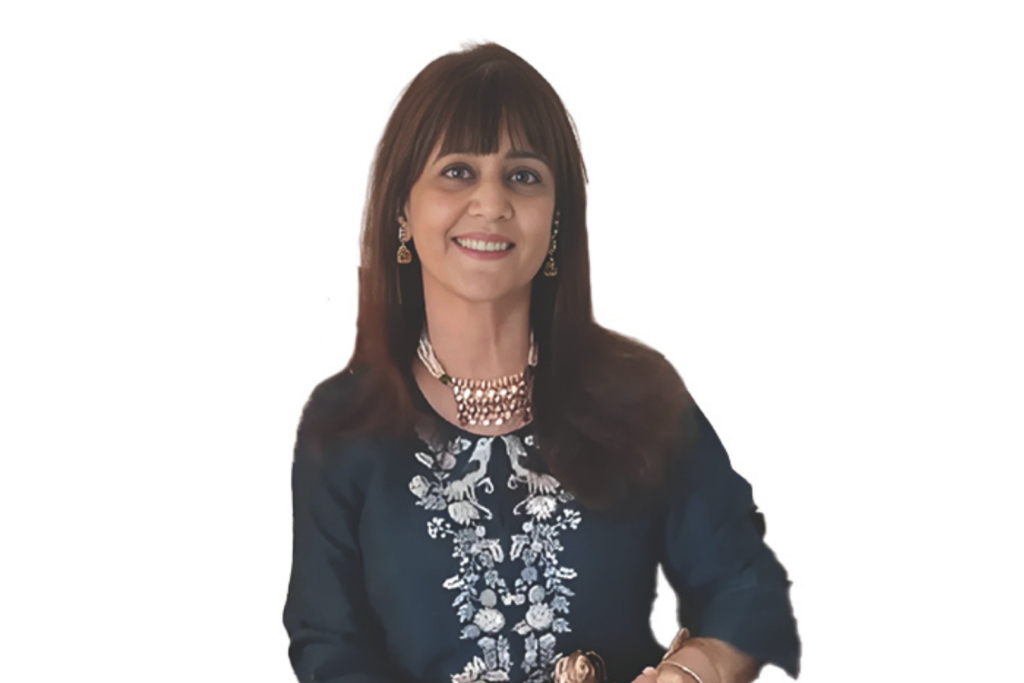
Logistics is the backbone of world trade
Anjali Bhide’s journey in the world of logistics began with a realization. While her initial venture in supplying ship spares and marine personnel thrived, she recognised a critical factor impacting both costs and service reliability: logistics. “Logistics is the backbone of world trade,” Bhide asserts. “It touches every aspect of our daily lives.” Recognising its resilience and essential nature, she was driven to establish Taurus Lines in 2013, aspiring to establish an enduring legacy and build a sustainable, scalable and successful business.
Leadership redefined
Bhide’s vision of leadership extends beyond traditional business acumen. “Leadership is not only about strategic thinking, financial management, and market knowledge,” she explains. “It has to do with the ability to inspire and motivate teams, to be driven by a purpose, to take a good idea deep down into the realms of actual actionables.” For Bhide, leadership is defined by empathy, foresight, and a commitment to nurturing growth, not just for the organisation but for the individuals who drive its success.
The art of the possible
Problem-solving is at the core of logistics, and Bhide recalls a critical challenge Taurus Lines overcame. A shipment of 60 containers from Nhava Sheva to Al Sokhna had to be loaded together due to customs restrictions in Egypt. However, a sudden move count restriction at the terminal allowed only 45 containers to be loaded, leaving 15 behind—potentially leading to heavy penalties and costly document changes for the customer. The team devised an innovative solution by requesting the feeder to induce a Jebel Ali call, where they offloaded the first lot of 45 containers, then loaded the remaining 15 containers to Jebel Ali. Once combined again, the entire shipment moved onward to Al Sokhna as planned. “As a logistician, these kinds of instances occur almost every day,” Bhide says, “but this one is memorable because we actually managed to convince the feeder operator to add a port call!”
Riding the wave of change
In a rapidly evolving industry, staying ahead of the curve is crucial. Bhide emphasises the importance of embracing cutting-edge technology to enhance the customer experience. “We are in an era of hyper change, we stand at another inflection point – generative AI which will bring about a fundamental shift in our relationship with technology.” she notes, highlighting the transformative potential of technologies like AI. Taurus Lines invests in real-time tracking and IT solutions to optimize delivery, cut delays, and reduce costs. “By investing in modern technologies, Taurus Lines can significantly enhance customer experience” Bhide believes. This commitment to innovation is coupled with a focus on total quality management, ensuring consistent, reliable service.
The evolving landscape
Bhide also shares her perspective on the evolving role of women in logistics. While acknowledging the need for greater representation, she points to the growing number of women making their mark in the industry. “Today, women have become the sunrise segment in every field, from shipping to politics,” she observes. She emphasises raising awareness and equipping women with skills to boost gender diversity in logistics. “Bringing about an awareness of logistics being a long-term and fulfilling career is essential,” she states.
The power of adaptability
With over two decades of experience, Bhide offers a key lesson for aspiring logistics professionals: the importance of adaptability. In today’s volatile and uncertain world, “we need to have mental liquidity,” she stresses. “We have to learn to develop the ability to adapt our business models with the changing times.” For Anjali Bhide and Taurus Lines, navigating the seas of logistics requires not just expertise and innovation but also the agility to chart new courses in response to a constantly shifting landscape.
Architecting sustainable logistics in India

Logistics is a dynamic and ever-evolving industry
Dr. Sharmila H. Amin is a pivotal force in the Indian logistics sector. Her journey underscores leadership, innovation, and a firm commitment to sustainable practices, shaping the trajectory of global supply chain management.
Driven by operational puzzles
Dr. Amin’s foray into logistics stemmed from a deep-seated passion for resolving intricate operational challenges and managing expansive supply chains. “Logistics is a dynamic and ever-evolving industry, which intrigued me from the start,” she affirms. Her career has been characterised by embracing hurdles and acquiring profound insights into global supply chain management. At Bertling Logistics India, her leadership is defined by a dedication to innovation, sustainability, and efficiency, leveraging cutting-edge technology, and nurturing a people-centric organisational culture.
Global expertise, local focus
Bertling Logistics, with its 159-year legacy, seamlessly integrates its international expertise with the evolving demands of the Indian market. India’s logistics sector is undergoing rapid transformation, fuelled by infrastructure development and digital adoption. To ensure harmonious alignment, Dr. Amin prioritises sustainability, digitalisation, intermodal transportation, and global trade compliance. “By blending these global best practices with a deep understanding of India’s regulatory environment and customer needs, we provide tailored solutions that drive growth in the Indian logistics space,” she elucidates.
Strategic solutions
A paramount challenge in Indian logistics is the inherent unpredictability of supply chain disruptions. To mitigate this, Dr. Amin has implemented robust strategies centred on supply chain resilience, real-time data analytics, and process automation. “By integrating these strategies, we have been able to minimise disruptions, improve on-time deliveries, and enhance overall operational efficiency,” she states.
Inspiring the next generation
As a trailblazing woman leader in a traditionally male-dominated industry, Dr. Amin has navigated unique challenges. To empower and inspire the next generation of women, she actively mentors and advocates, fosters inclusivity, and champions skill development. “Logistics has traditionally been a male-dominated industry, and breaking into leadership roles as a woman comes with its own set of challenges,” she acknowledges. “Some of the hurdles I faced included overcoming stereotypes, proving my capabilities in a competitive environment, and ensuring equal opportunities for women in logistics.”
Aspiring to future milestones
Dr. Amin envisions strengthening Bertling Logistics India’s position as a vanguard in sustainable and technology-driven logistics. This encompasses expanding service capabilities, adopting cutting-edge innovations, and contributing to the modernisation of India’s supply chain infrastructure. On a personal level, she aspires to continue mentoring aspiring professionals and shaping the future of the logistics industry. “As my role evolves, I see myself focusing more on strategic growth initiatives, industry advocacy, and fostering collaborations that drive meaningful change in the global supply chain landscape,” she concludes.
A trailblazer redefining leadership
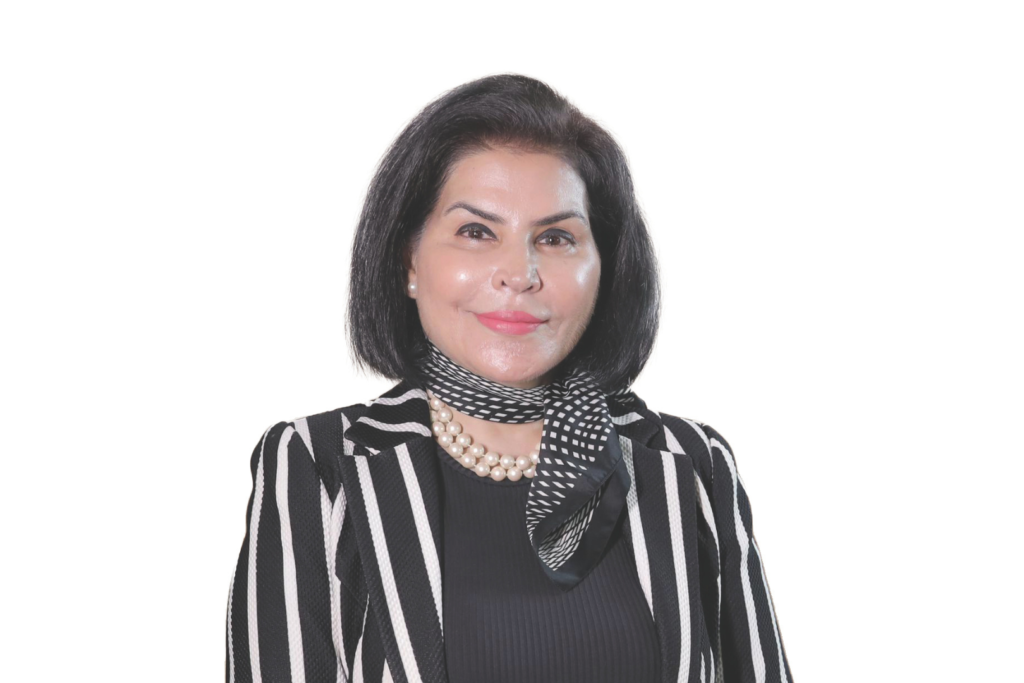
Influenced by her father, Vandana symbolises a drive to empower women, breaking barriers
In the fast-paced world of aviation and logistics, Dr. Vandana Singh stands out as a visionary actively shaping the industry’s future. With over 28 years of global experience, Vandana has consistently demonstrated her ability to achieve ambitious targets, foster cooperation, and inspire. As Director of Global Key Accounts at Saudia Cargo, she leverages her expertise in air cargo management, strategic planning, and business development to drive growth.
Building foundations
Her journey began with a strong foundation in customer service and relationship management, honed during her early career in hospitality with brands like The Oberoi and Hyatt. “My time in hospitality taught me the importance of putting the customer first and building lasting relationships,” Vandana reflects. “These principles have guided me throughout my career, and I believe they are essential for success.”
Mastering the industry
One of Dr. Vandana Singh’s notable achievements is with Lufthansa Cargo, where she dedicated 15 years to mastering the air cargo industry. She describes this time as “foundational to her growth.” Her efforts in freighter load optimisation and achieving results for Lufthansa Cargo led to her receiving an individual Oscar award, underscoring her dedication. “If your mind can conceive it and your heart can believe it, then you can achieve it.” This mindset has been the cornerstone of my journey.
Balance, resilience, and inspiration
Dr. Singh’s journey extends beyond professional achievements, embodying balance and resilience. Drawing inspiration from Albert Einstein, she pilots chaos with simplicity and finds opportunities in hardship. Influenced by her father, Brigadier S. L. Kapur, Vandana symbolises a drive to empower women, breaking barriers. She advises young women to be confident and encourages networking.
Empowering women
She is deeply committed to women’s empowerment. She has launched initiatives aimed at uplifting women, including skill development workshops focusing on digital literacy, financial management, and leadership. She collaborates with NGOs to advocate for women’s rights and address issues such as domestic violence and workplace discrimination.
“I believe that empowering women is not only the right thing to do, but it’s also essential for creating a more diverse and inclusive industry,” Vandana explains. “By providing women with the skills and resources they need, we can unlock their full potential and drive innovation.”
Recognition and impact
Her contributions have been recognised through awards, including the Inspiring Women Achievers Award 2024, the Nari Shakti Award, and the International Women Achievers Award 2023. As a TED Talk speaker on “Embrace the Change,” she inspires others to adapt and thrive, encouraging continuous learning and innovation.
The key to success
“The aviation and logistics industry is constantly evolving, so it’s important to be adaptable and embrace new technologies and approaches,” Vandana advises. “By staying curious and open to change, we can position ourselves for success.”
A true trailblazer
With her dedication, vision, and commitment to empowering others, Dr. Vandana Singh is a trailblazer redefining leadership. Her journey inspires professionals, particularly women, paving the way for a more innovative, sustainable, and inclusive future and inclusive future.
Passion and Innovation Driving Logistics Excellence

By breaking barriers and redefining norms, we are shaping a more balanced and progressive logistics industry
Sarini Sachdeva is a visionary leader reshaping the logistics landscape. Driven by a deep passion for the industry, she has built Aardour into a company known for its efficiency, innovation, and customer-centric approach.
Passion and purpose
“Aardour is a Spanish word meaning passion. It also resonates with ‘Our Dor’ ‘Humara dor/Yog,’” Sachdeva explains. “Work is passion for us.” Aardour Worldwide Logistics was founded to redefine the logistics landscape with efficiency, innovation, and a customer-first approach. The company’s vision has evolved with global dynamics, focusing on building a team that thrives on excellence, adaptability, and service. “Our focus remains on innovation, sustainability, and creating value for our clients,” she states, “ensuring that Aardour continues to set new benchmarks in the industry.” This dedication to continuous improvement is a cornerstone of Aardour’s philosophy, driving them to constantly seek better solutions. The team is driven by a shared vision of excellence.
Agility and foresight
With over two decades of experience, Sachdeva sees leadership in logistics transforming significantly. “It’s no longer just about operational efficiency—it’s about agility, resilience, and strategic foresight,” she notes. At Aardour, leadership is about empowering teams, fostering innovation, and embracing digital transformation. Navigating disruptions, building sustainable supply chains, and maintaining strong partnerships are crucial. “The role of a leader today is to inspire, innovate, and create solutions that not only meet current challenges but also shape the future of logistics,” she emphasises. This proactive approach ensures Aardour remains ahead of industry trends and anticipates future needs.
Overcoming challenges
Aardour faced a challenging case involving an urgent, high-value shipment encountering customs and regulatory roadblocks. By leveraging their global network, regulatory expertise, and real-time data analytics, the team ensured seamless clearance and on-time delivery. “The key takeaway? Agility, expertise, and strong industry relationships are critical in logistics,” Sachdeva states. “Challenges are inevitable, but with the right approach, they become opportunities to reinforce trust and deliver excellence.” This experience reinforced the importance of robust contingency plans and a customer-first mentality, cementing Aardour’s reputation.
Shaping a balanced industry
Sachdeva recognises the evolving role of women in logistics. “Women are increasingly taking on leadership roles, driving innovation, and bringing fresh perspectives to the sector,” she observes. At Aardour, diversity is a strength. The company actively creates opportunities for women through mentorship, skill development, and leadership training. “We foster an inclusive work culture where talent is recognised over gender, ensuring that women have the confidence and support to thrive,” she explains. “By breaking barriers and redefining norms, we are shaping a more balanced and progressive logistics industry.” This commitment to diversity extends beyond gender, encompassing all forms of inclusion and fostering a rich and dynamic workplace.
Forging an inclusive logistics future
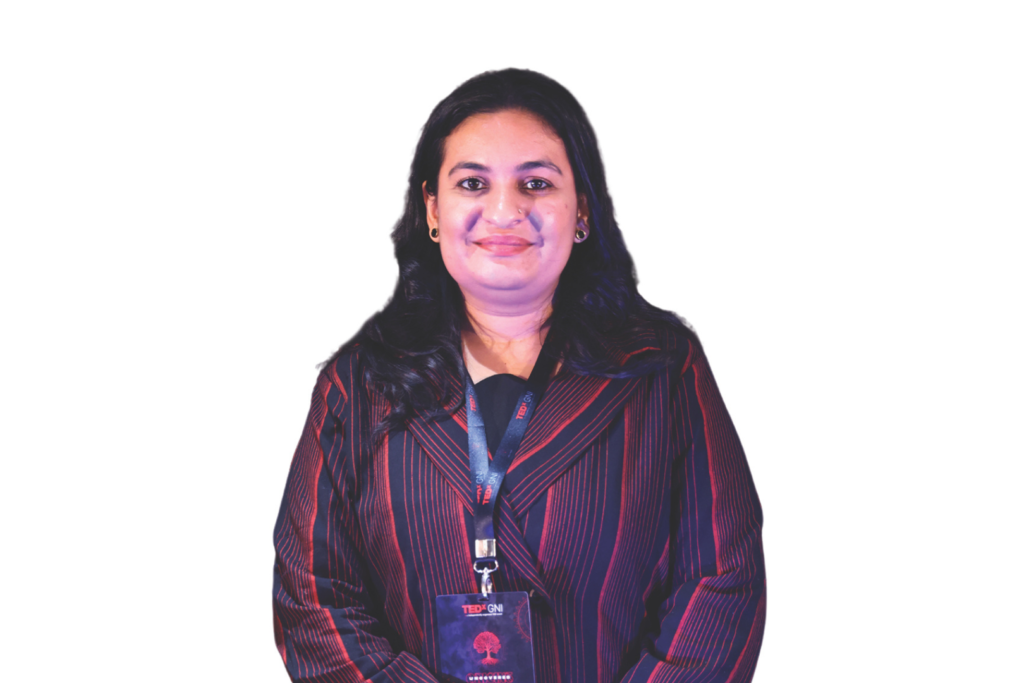
Many people, especially women, are unaware of diverse roles within logistics
Apeksha Gupta is at the forefront of transforming the logistics industry through targeted training and advocacy for inclusivity. Her insights illuminate the crucial need for a skilled and diverse workforce in today’s rapidly evolving logistics landscape.
Urgent need for skilling
The logistics industry is experiencing a profound transformation, driven by technological advancements, globalisation, and shifting consumer demands. This evolution necessitates a workforce proficient in both traditional logistics practices and emerging technologies like AI, data analytics, and automation. With the exponential growth of e-commerce, efficient supply chain management and timely deliveries are more critical than ever. “Skilling is essential to ensure that professionals can adapt to these changes, drive innovation, and meet the industry’s increasing complexities,” Apeksha emphasises. Empowering individuals through targeted training is now paramount to building a responsive and agile workforce.
Bridging the awareness gap
Despite the industry’s growing significance, awareness about logistics education remains limited. This gap stems from the perception of logistics as a low-skill sector, limited visibility of career pathways, and insufficient outreach to educational institutions. “Many people, especially women, are unaware of the diverse roles within logistics that go beyond traditional warehousing and transportation,” Apeksha notes. To bridge this gap, enhancing outreach and engagement is crucial. Initiatives like workshops, seminars, and partnerships with educational institutions can play a pivotal role. Showcasing success stories of women and other under-represented groups can inspire the next generation, attracting more individuals to pursue careers in this dynamic field.
A journey of choice
Apeksha’s entry into the logistics industry was by choice, driven by a fascination with the intricate dynamics of supply chains and their impact on global trade. “This journey has been transformative; it has equipped me with valuable skills in problem-solving, strategic thinking, and leadership,” she reflects. More importantly, it has ignited her commitment to empowering women and marginalised groups within the industry. Her experiences have underscored the importance of resilience and adaptability, shaping her vision of a more inclusive and equitable logistics landscape.
The power of inclusivity
As a leader, Apeksha is guided by the belief in the power of inclusivity. “I firmly believe that diverse perspectives drive innovation and efficiency in logistics,” she states. By advocating for the inclusion of women and other under-represented groups, she not only addresses the gender imbalance but also enriches the industry with varied viewpoints. This commitment to inclusivity shapes her work, from training students to collaborating with companies, ensuring that everyone has a seat at the table.
Solving real-world challenges
Apeksha faced a significant challenge during a training program for junior college students who lacked confidence and understanding of the logistics sector. To address this, she designed an interactive workshop that provided a comprehensive introduction to logistics and supply chain, highlighting its diverse fields. “After the workshop, feedback was overwhelmingly positive, and many students reported increased confidence in their skills and readiness for interviews and further courses in logistics,” Apeksha recalls. This innovative approach not only enhanced their understanding but also bridged the gap between education and industry expectations, showcasing the transformative power of targeted training.

